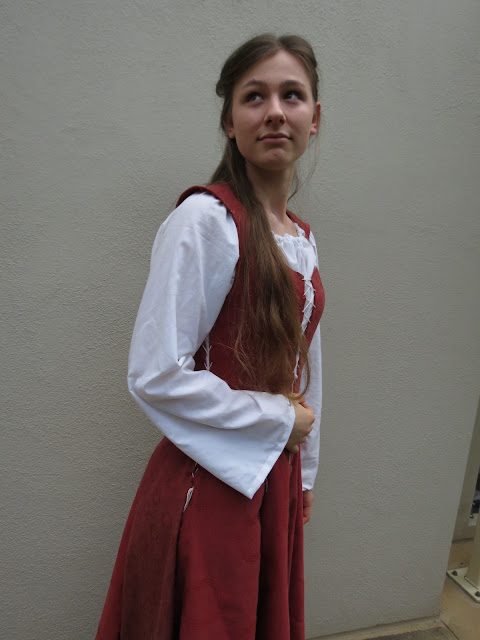My dear friend and budding author has recently been working on her first book and asked to do a photo shoot with me for the front cover. My mind immediately sprung on ideas of recreating, Zara, the main character's, dress/coat. She draw me some pictures of the outfit she had in mind which converted a medieval inspired dress into a long coat by adding full-length slits under the lacing in the centre front, back and sides; thus making the outfit very practical.

The whole project took me less than a day and I completely skipped making a mock-up, but it turned out to be almost perfect!
I used a doona cover for the dress but I ran out of fabric so I was forced to cut the right side-back panel out of the decorative border which has a slightly different pattern and colour.
For the chemise, I cut out a basic peasant style blouse out of a sheet. I completely guessed the width of the sleeves and the amount of gather around the neckline but it turned out really well!
All in all I'm very happy with how this turned out. I originally planned to have the lacing gaps larger but it still looks really nice with how they are. It is a really flattering design and since making it, my sister and cousin have both used this pattern for outfits of their own!
Date: Fantasy
Description: Long coat and chemise
Time: One day
Cost: Less than $5!































